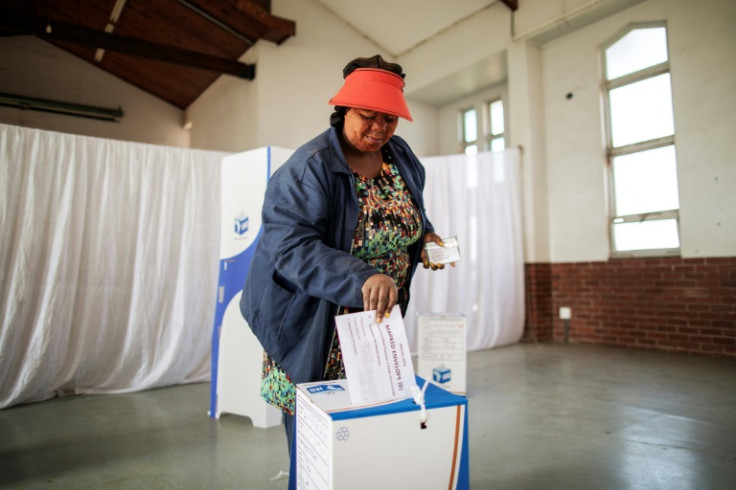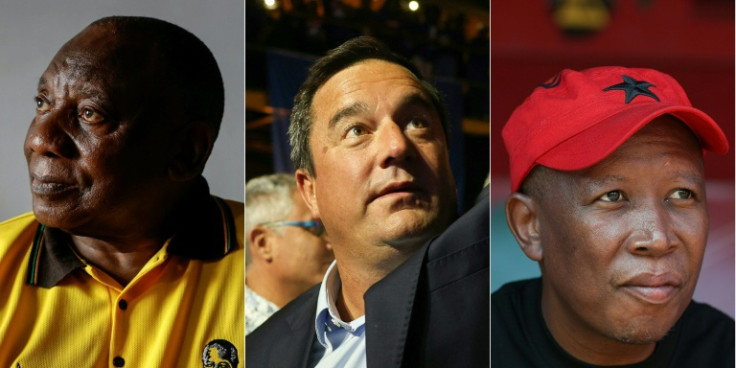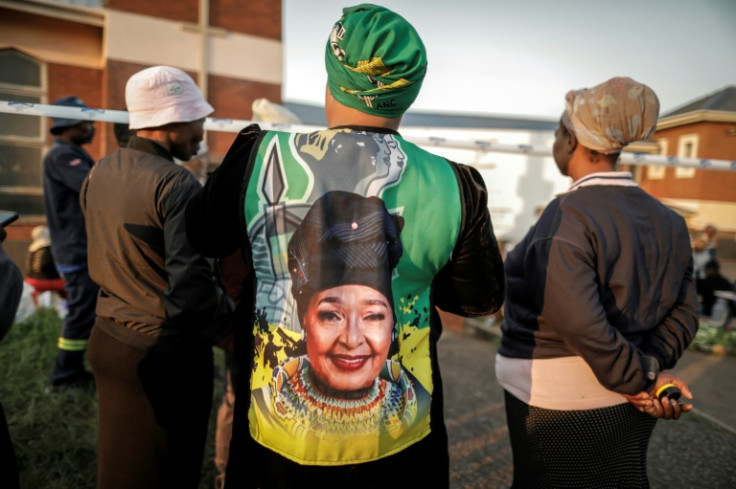
South African voters turned out for a landmark general election on Wednesday, with the ruling ANC's exclusive grip on power in doubt three decades after the advent of democracy.
Some 27 million voters are registered for the most uncertain poll since the African National Congress (ANC) led the nation out of apartheid rule, with opposition challenges from both the left and right.
In Soweto, the former black township that became the unofficial capital of the liberation struggle, elderly voters still loyal to the ANC turned out early, for a station that opened 15 minutes late.
"I am very excited to be here. It is the reason I woke up so early. I have to vote for the party that I love, that made me who I am today," said 76-year-old Agnes Ngobeni, the first in the queue at one station.
Asked who she was supporting, she said: "Its a very old party that has has been with us all along. I don't like the new guys."
Danveries Mabasa, a 41-year-old unemployed Sowetan in a grey knee length coat and brown cap disagreed.
"I want change. Its been a long way coming. The least I can do myself is vote and keep waiting. We have no jobs, no water, nothing is working," he said.
In Nkandla, in the volatile eastern province of KwaZulu-Natal, some of the first voters were confused by the complex voting system.
"I had to ask for help and explanation because it's the first time we've had three ballots," complained 70-year-old Cynthia Ntshangase, as she left the school house turned polling station.
In Wednesday's election, voters will choose the 400 members of the National Assembly and these MPs will then go on in the coming weeks to choose a president from among their number.
Candidates for South Africa's nine provincial assemblies are also on the ballot.
For the first time since the advent of democracy in 1994, the ANC could be forced to negotiate a coalition in order to remain in government.
"South Africa's general election is a watershed moment in the political history of the country," said Aleix Montana, an analyst at risk intelligence company Verisk Maplecroft.
Under the leadership of the late Nelson Mandela, the ANC won freedom for black South Africans after decades of apartheid, then lifted millions out of poverty by creating a broad social welfare system.
But many in the country of 62 million are fed up with high unemployment, currently at 32.9 percent, rampant crime, corruption scandals, and regular power cuts and water shortages.
The economy grew a meagre 0.6 percent in 2023.
President Cyril Ramaphosa, who is seeking a second term, defended his record in a speech to the nation on Sunday, citing progress in fighting graft and fixing gaps in electricity production among other successes.
"We have placed South Africa on a new trajectory of recovery and laid a strong foundation for future growth," the 71-year-old said.
"We cannot afford to turn back. There is more work to be done."
He has also promised to usher in universal credit and push ahead with plans to provide health coverage.
But polls suggest the ANC could win as little as 40 percent of the vote, down from 57 percent in 2019.
If the ANC wins fewer than 201 seats, Ramaphosa would have to negotiate with opposition parties and independent MPs to secure a majority and return to government headquarters in Pretoria.
It could face stark choices.
On the right, it is beset by the Democratic Alliance (DA), which has vowed to "Rescue South Africa" through clean governance, privatisation and deregulation.
Polls put its support below 25 percent.
On the left, it is bleeding support to former president Jacob Zuma's uMkhonto weSizwe (MK) and Julius Malema's Economic Freedom Fighters (EFF), which favour land redistribution and nationalisation.
Polls estimate the two parties are tied at around 10 percent.
Once an ANC stalwart, Zuma fell out with his old party after being forced out of office under a cloud of corruption allegations in 2018.
He has been barred from standing as an MP because of a conviction for contempt of court, but remains extremely popular in KwaZulu-Natal, his home province.
Were the ANC to come close to 50 percent, however, it could strike a potentially easier deal with some of the dozens of smaller groups in the running.
Full results are not expected before the weekend.










